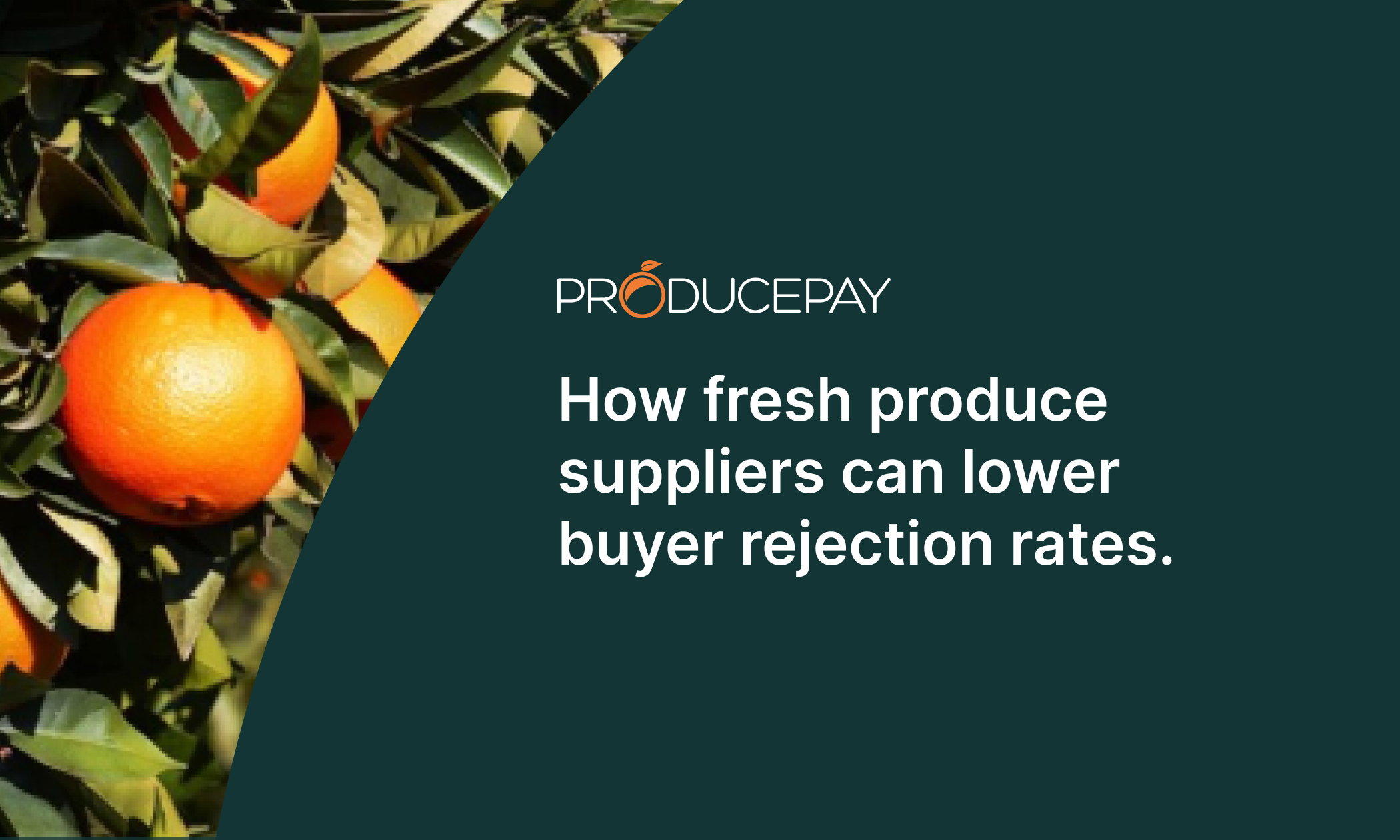
How fresh produce suppliers can lower buyer rejection rates.
Fresh produce trading is inherently complicated, presenting significant challenges for suppliers aiming to meet the high-quality standards required by retailers while ensuring their produce arrives in peak condition.
A 2022 Trinity Logistics study highlighted that fresh produce shipments encounter a rejection or delay rate of approximately 12%. This issue largely stems from the logistical complexities and the perishability of fresh foods, which are prone to damage from improper handling, fluctuations in temperature, or transport delays.
Furthermore, the Global Food Security Programme in the UK reports that supermarkets reject as much as 40% of fresh produce due to quality non-compliance. This stark reality prompts suppliers to seek efficient strategies to decrease rejection rates and bolster the profitability of their operations. Beyond the immediate financial loss, rejections exacerbate logistical expenditures, strain customer relationships, and tarnish the supplier’s reputation.
Traceability within the agricultural supply chain is pivotal to addressing these challenges. It is a holistic approach that allows suppliers to enhance the quality and efficiency of their delivery systems and secure an edge in the competitive market.
How do rejections affect suppliers?
Rejections of agricultural products significantly impact suppliers, affecting their profitability and market reputation. When a retailer or distributor rejects a load, the supplier faces a series of challenges and negative consequences, both immediate and long-term.
Direct economic loss
The most immediate impact of rejections is the direct economic loss. Rejected products represent an investment that does not generate a return on production, packaging, and transportation costs. Depending on their type, these products may have a limited shelf life, reducing the possibility of recovering the investment by seeking other sales channels.
Additional logistical costs
The supplier must bear the cost of returning the product, extra storage, and possibly managing its final disposal. These costs increase operational expenses, further reducing the supplier’s profit margin. Moreover, there are the additional costs of the reshipments required to fulfill the original commitment to buyers – sometimes with expedited shipping, which can be extra costly.
Impact on customer relationships
Rejections can damage the relationship between suppliers and retailers. A history of rejected deliveries can erode trust and lead retailers to seek more reliable suppliers. This affects future sales with that customer and can negatively influence the perception of potential new customers.
Brand reputation damage
Frequent rejections can negatively affect the supplier’s brand reputation. In the digital information age, news about quality or compliance issues can spread quickly, making it challenging to acquire new customers and possibly lose existing ones.
Missed improvement opportunities
Rejections also represent missed opportunities for improvement. By properly analyzing the underlying causes, suppliers may avoid facing the same quality or compliance issues that prevent the growth and optimization of their operations.
Benefits of traceability for suppliers
Through advanced tools, traceability in the agricultural supply chain represents a comprehensive solution for suppliers looking to minimize rejections and optimize their operations. Traceability improves the quality and efficiency of delivery processes and offers significant competitive advantages in the market.
Improved data-driven decision-making
With the implementation of traceability systems, suppliers gain access to critical real-time data about the quality and status of agricultural products. This allows for more informed and proactive decision-making, facilitating identifying and correcting problems before the products reach the retailers. By anticipating quality issues, suppliers can significantly reduce the incidence of rejections, thus optimizing their profitability and operational efficiency.
Strengthened customer relationships
The ability to ensure consistent and high-quality deliveries strengthens trust between suppliers and retailers. This trust translates into more stable and long-lasting business relationships, demonstrating a commitment to excellence and reliability, two qualities highly valued by customers in the agricultural sector.
Reduced costs and losses
Traceability allows suppliers to manage inventory and delivery timelines more effectively, thus reducing logistical costs and minimizing losses due to perishable products. Having tighter control over the supply chain can identify efficiencies in transportation and storage, which in turn leads to an increase in profit margin.
Continuous improvement and compliance with standards
The collection and analysis of data provided by traceability systems facilitates the identification of trends and areas for improvement. This allows suppliers to adjust their processes to meet the quality standards demanded by customers and promotes a culture of continuous improvement. Adapting to quality and food safety standards becomes more straightforward and practical, ensuring market competitiveness.
Market expansion and business opportunities
Demonstrating a solid commitment to quality and traceability opens new supplier market opportunities. Certification of processes and products can facilitate entry into more demanding and lucrative markets, where traceability is a prerequisite for doing business. This increases sales opportunities and enhances the supplier’s brand image globally.
What does ProducePay Visibility offer suppliers?
We developed ProducePay Visibility as our innovative response to the challenges of managing a global fresh produce supply chain. It reflects our commitment, combining cutting-edge technology with our agronomists’ expertise to provide complete visibility and control of your product from farm to final destination. We tackle the problem head-on by mitigating the supply chain inefficiencies that often lead to rejections and dissatisfied customers.
Our comprehensive solution is built on key features that make a difference. With our on-site agronomists performing rigorous quality checks, detailed pallet-level inspections at shipping, and real-time, in-depth order tracking that keeps you informed of critical data like location, temperature, and humidity, we’ve got you covered. Plus, our custom-built dashboard brings together all critical order details and streamlines order management, communication, and performance evaluation.
This way, we support you get your high-quality products to arrive in full, on time and meet specifications. You will also benefit from enhanced collaboration across the supply chain through unprecedented transparency.
Our end-to-end approach even includes early detection of non-conforming products, allowing them to be redirected through commercial services to avoid waste. We are proud to say that our approach to the fresh produce global supply chain has led to a 90% reduction in rejects and waste in retail, demonstrating the effectiveness of our platform in driving operational efficiency and sustainability.


